
Once upon a time, long before Uber Eats and microwaves, we humans hunted protein-rich food and gathered roots and berries. If they were sweet, we’d fill our stomachs. If they were sour, we’d keep away. We had finely-tuned survival instincts so we could bolt if we sensed a tiger snake nearby. We formed strong social bonds because isolation meant death. It wasn’t all strawberries and naps in the sun, but life was simpler.
Historian Yuval Noah Harari says it’s likely our prehistoric ancestors enjoyed a far easier and, arguably, happier existence. Yes, we had to worry about lions. But we only had to worry about lions. We “didn’t have to deal with automobile accidents or industrial pollution,” he writes in his book Sapiens: A Brief History of Humankind. There were “no floors to polish, no nappies to change and no bills to pay”.
There was no need for sleeping pills, digital detoxes or deep-tissue massages. All our meals were organic, free-range and non-GMO. We lived in mobile tribes with few possessions and little pressure, far from skyscrapers, fast food, traffic and 24-hour news cycles. Our modern world “gives us more material resources and longer lives than those enjoyed by any previous generation, but it often makes us feel alienated, depressed and pressured,” Dr Harari explains.
Many behavioral psychologists who have spoken to The Weekly over the years about the malaise, insomnia, exhaustion and anxiety that plague our society agree: The gap between human nature and our contemporary environment is harming our mental and physical health.
This story is from the August 2023 edition of The Australian Women's Weekly.
Start your 7-day Magzter GOLD free trial to access thousands of curated premium stories, and 9,000+ magazines and newspapers.
Already a subscriber ? Sign In
This story is from the August 2023 edition of The Australian Women's Weekly.
Start your 7-day Magzter GOLD free trial to access thousands of curated premium stories, and 9,000+ magazines and newspapers.
Already a subscriber? Sign In
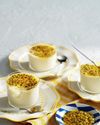
Maggie's kitchen
Maggie Beer's delicious veg patties - perfect for lunch, dinner or a snack - plus a simple nostalgic pudding with fresh passionfruit.

Reclaim your brain
Attention span short? Thoughts foggy? Memory full of gaps? Brigid Moss investigates the latest ways to sharpen your thinking.
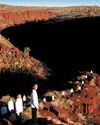
The girls from Oz
Melbourne music teacher Judith Curphey challenged the patriarchy when she started Australia's first all-girls choir. Forty years later that bold vision has 6500 members, life-changing programs and a new branch of the sisterhood in Singapore.
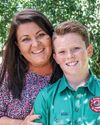
One kid can change the world
In 2018, 10-year-old Jack Berne started A Fiver for a Farmer to raise funds for drought relief. He and mum Prue share what happened next.
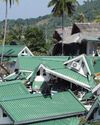
AFTER THE WAVE
Twenty years ago, the Boxing Day tsunami tore across the Indian Ocean, shredding towns, villages and holiday resorts, and killing hundreds of thousands of people from Indonesia to Africa. Three Australians share their memories of terror, loss and survival with The Weekly.
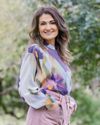
PATRICIA KARVELAS How childhood tragedy shaped me
Patricia Karvelas hustled hard to chase her dreams, but it wasn't easy. In a deeply personal interview, the ABC host talks about family loss, finding love, battles fought and motherhood.
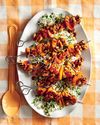
Ripe for the picking
Buy a kilo or two of fresh Australian apricots because they're at their peak sweetness now and take inspiration from our lush recipe ideas that showcase this divine stone fruit.
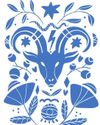
Your stars for 2025
The Weekly’s astrologer, Lilith Rocha, reveals what’s in store for your astrological sign in 2025. For your monthly horoscope, turn to page 192.
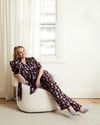
MEL SCHILLING Cancer made me look at myself differently'
One year on from going public with her bowel cancer diagnosis, Mel Schilling reveals where she's at with her health journey and how it's changed her irrevocably.

Nothing like this Dame Judi
A few weeks before her 90th birthday, the acting legend jumped on a phone call with The Weekly to talk about her extraordinary life – and what’s still to come.